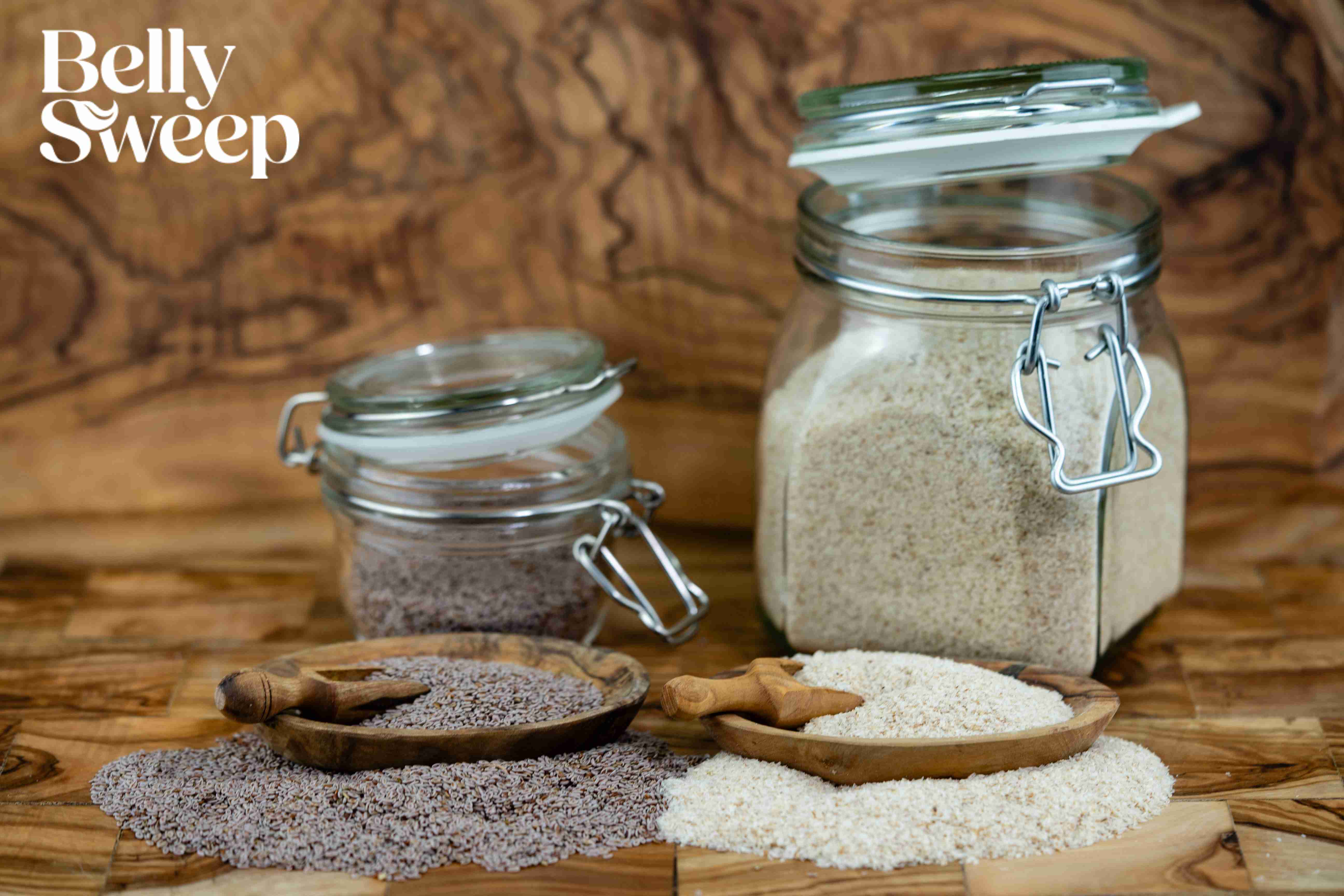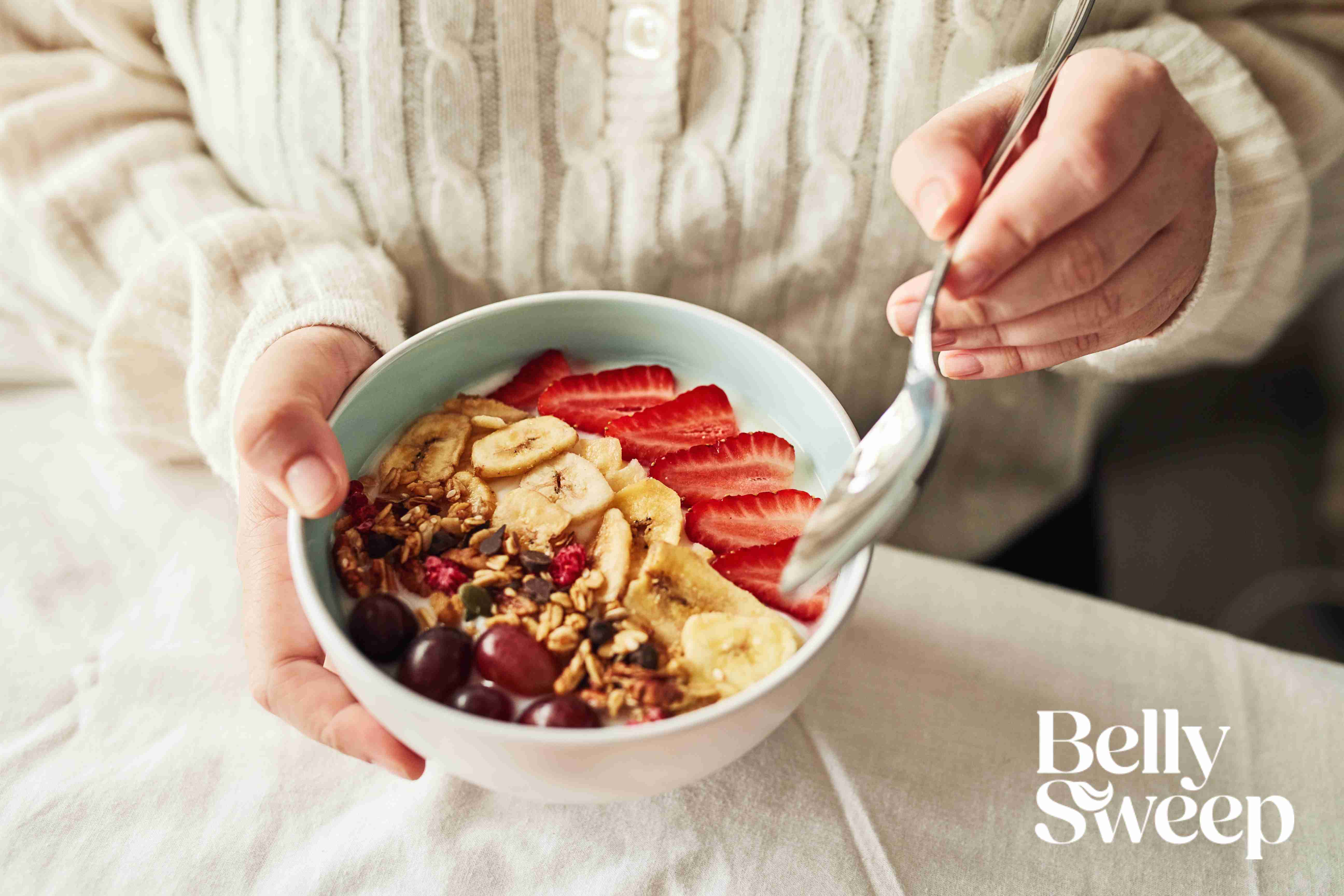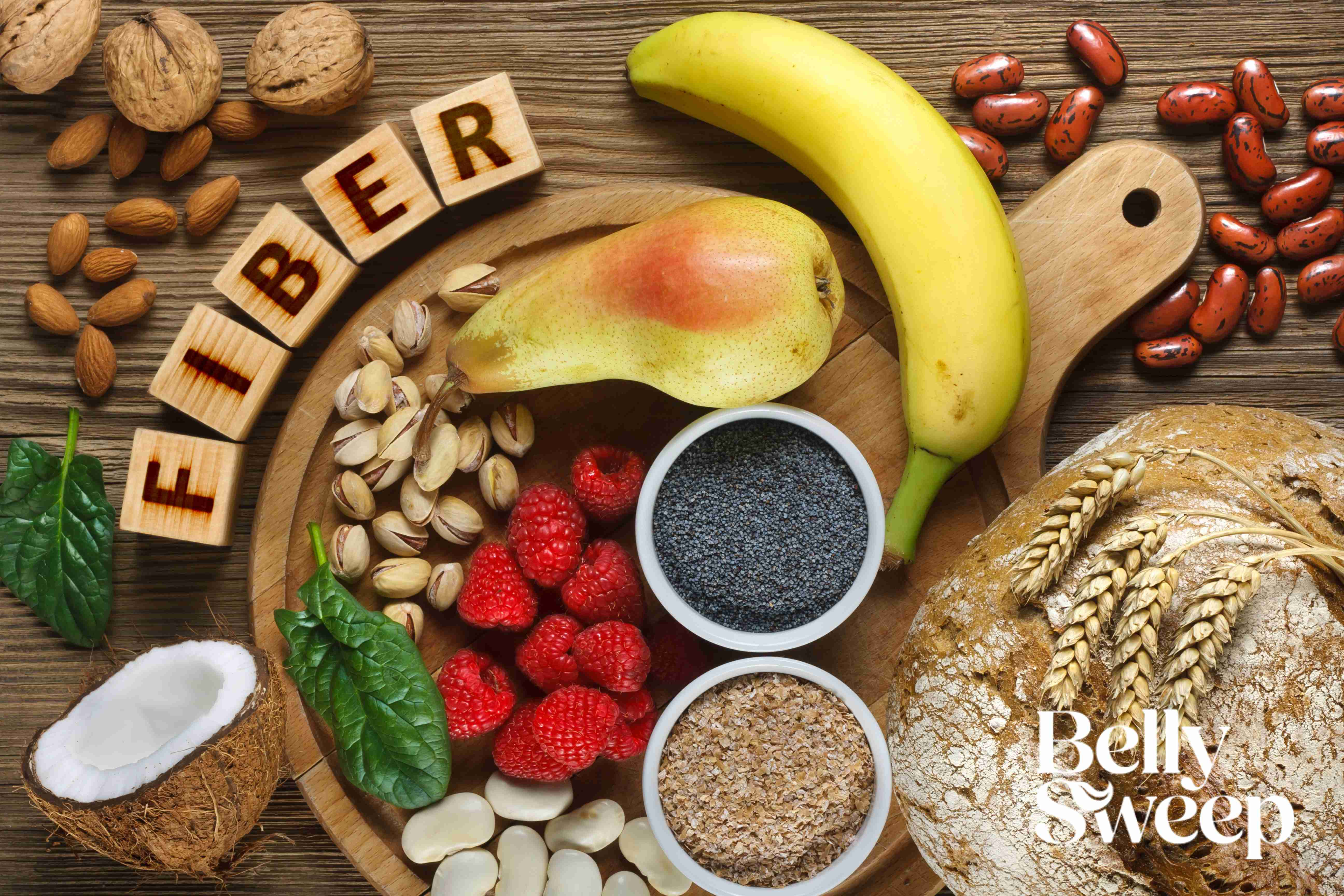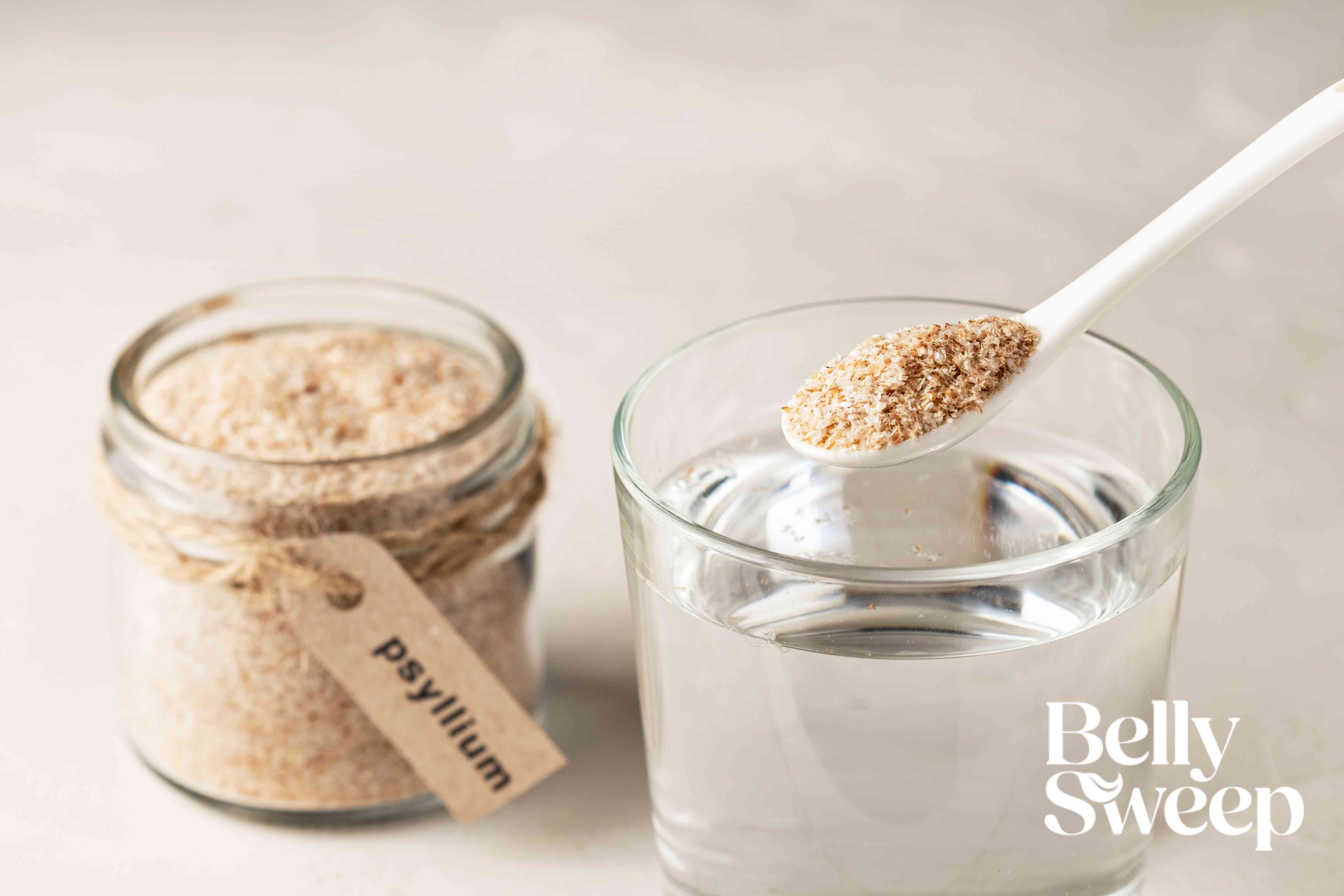Fiber Supplements for Constipation: How to Use Them Safely
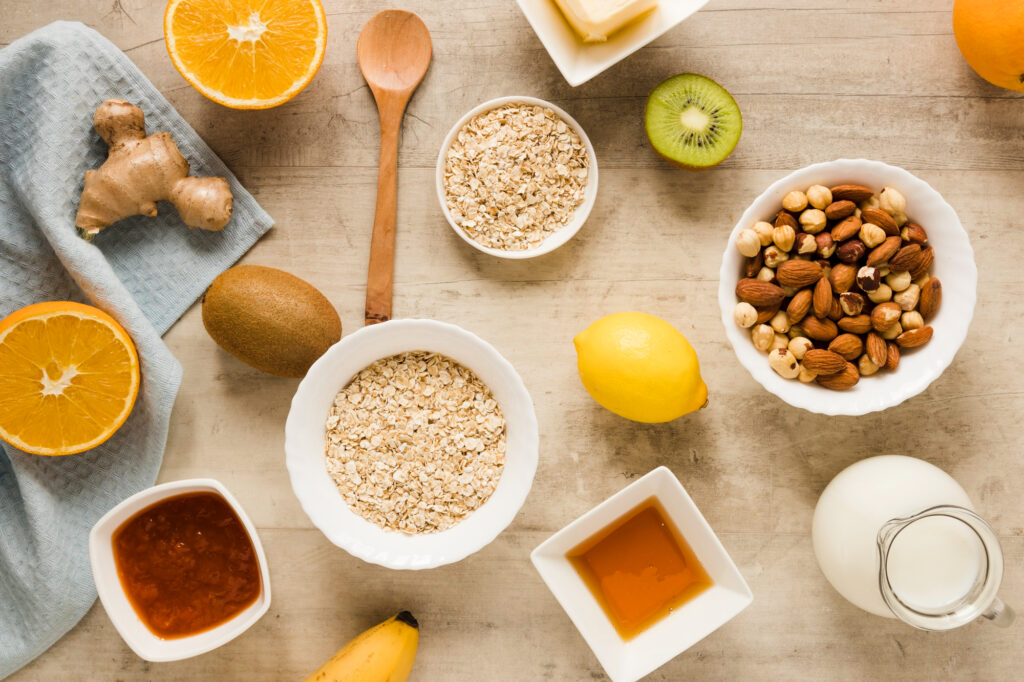
Do you want to start taking fiber supplements for constipation so that you can live a healthier, happier life? Feeling like you can’t comfortably pass a stool can cause a great deal of stress and will upset your body’s delicate natural balance.
Things get a little more difficult when you consider that you can take too much fiber and cause yourself other issues. Clearly, we don’t want that to happen, that’s why we’re going to guide you through how to use fiber supplements safely.
Let’s start with the background information you need to know.
Why People Use Fiber Supplements
A quick search online will show you that fiber supplements can be taken to help with everything from high blood pressure to blood sugar volatility, but our focus today is on combating constipation.
Using fiber supplements for constipation is all about bulking out your stool so that it can pass more easily through your body. By introducing dietary fiber of the correct quantity you can create stool that is the right consistency to pass through your intestines.
If you suffer from constipation, your stool will typically be very hard, dry, and too small to pass through comfortably. Bulking it out with a natural fiber supplement helps the guts to gently work it through so that you can start living a healthier life.
Many people choose to use fiber supplements because they struggle to get enough fiber through eating alone. While natural fiber sources are very important and contain a range of other nutrients, fiber supplements can make a real difference in quality of life. That said, it’s important to use supplements to optimize a balanced diet and not to try and replace one.
Overview of Benefits and Side Effects
Using fiber supplements for constipation is a proven way to combat many of the underlying issues that cause this common issue. To show you the whole picture, we’re going to take a look at the benefits and potential side effects.
What are the benefits of fiber supplements?
Achieving optimal fiber intake helps you in a wide variety of ways. Numerous scientific studies show you will be able to:
- Make stool that is of the correct consistency so that it passes smoothly through your gut
- Feed your healthy gut bacteria and create conditions for optimal digestion and nutrient uptake
- Become more regular with your bowel movements and prevent bloating and gas
- Use fiber supplements to lower blood pressure, improve heart health, and combat harmful LDL cholesterol
Because we are all about transparency and balance, we’re also going to highlight the potential side effects.
What are the side effects of fiber supplements?
While fiber supplements do a lot of good, there are also some side effects that you will want to monitor:
- Feeling bloated throughout the day is a sign that you are taking too much fiber supplement and that your intake needs to be reduced
- Persistent gas — particularly if it has an odor — is a sign that you are on the wrong dosage and that the level needs to be reduced
- Constantly feeling thirsty and passing yellow or cloudy urine is a sign that you have not increased your water intake sufficiently — drink enough to make your urine clear
Recording any side effects you experience in a wellness journal will allow you to keep on top of things. It will also allow you to monitor all of the other positive benefits to your overall health.
As well as side effects, we also need to pay attention to potential allergic reactions and other forms of complications.
Addressing Allergic Reactions
When you start understanding fiber intake and what your body needs, you become more aware of allergies and intolerances. Common allergens found in some fiber supplements for constipation include gluten and artificial additives. The best type of supplement will be one that is 100% natural so that it aligns with precisely what your body needs.
If you experience persistent gas and bloating that doesn’t go away when you take in more water, you likely have an intolerance to something in the supplement. If it is gluten, you may also experience small, itchy patches of skin with raised bumps that weren’t there previously. Coming off the supplement and looking for a gluten-free alternative is the best course of action here.
If you have a gut health condition such as IBS or diverticulitis, you may find that you need to reduce your fiber intake after initial supplementation. Spikes in the volatility of these types of chronic conditions indicate the gut is overloaded with fiber and inflamed. Reducing your fiber intake while speaking with a physician or trained dietitian is the best approach to take here.
There is also the potential for interactions with some types of medication when taking a fiber supplement. Delayed drug absorption is the most common side effect and is something that will need to be discussed with your family physician on an individual basis.
Armed with information on the full picture, you can now start to minimize the discomfort constipation is causing you.
Steps to Minimize Discomfort
Many people find they can reduce or eliminate stomach and intestinal discomfort by taking fiber supplements for constipation. Supplementing and eating more fiber will help your body create stool of the right size and consistency.
Much of the pain constipation causes is due to small, hard stools that feel like they require far too much force to pass. Removing this feeling of having to excessively strain will go a long way to making you feel better.
Stool that passes smoothly out of the body is also far less likely to cause a painful buildup of gas or trigger inflammation that results in bloating. You can further optimize the level of comfort you experience by looking at the timing of your supplementation.
If you want to start your day with a natural burst of energy and reduce the shock to your body, take your fiber supplement with your breakfast. And if you find that you struggle to have a regular bowel movement in the morning, consider taking it with fruit or a nut-based snack an hour before you go to bed.
Here are some other top tips you will want to pay attention to:
- Always take your fiber supplement with water so that you properly hydrate your sensitive gut lining
- Increase your water intake so that your urine is always clear and odorless
- Gradually increase your fiber intake over the course of several weeks to minimize the shock to your gut
Let’s build on that last point and figure out how best to start supplementing your fiber intake.
Best Practices for Starting Fiber Supplements
The key thing to remember about taking fiber supplements for constipation is that you need to build up gradually. Aim to start increasing your fiber intake by no more than 10% per day so that you give your gut and bowels time to adapt. Shocking the system is no good when you’re dealing with such a sensitive part of the body.
To achieve this target, you need to figure out how much fiber you actually need. We have written extensively about this in our other blog: How Many Grams of Fiber per Day? Guidelines for Optimal Health. Here are the key points broken down by demographic:
- Women under 50: 25-28 grams of fiber
- Men under 50: 31-34 grams of fiber
- Women 51+: 22 grams of fiber
- Men 51+: 28 grams of fiber
Things get complicated with children due to age and puberty, so the range is far wider at 14-31 grams of fiber per day. If in doubt, connect with a dietitian to discuss further.
Unlocking all of the fiber supplement benefits you will see listed requires an approach that is:
- Sustainable because you need to be able to do what you’re doing day after day, week after week, so that you can experience the full benefits
- Realistic because you don’t want to be too hard on yourself for setting goals and targets that no one else would be able to achieve either
- Practical because you still need to live your life, go to work, see your friends, and do everything else you need to do on any given day
- Low stress because you don’t want to cause inflammation in the body due to stress by trying and failing to stick to a diet that is too strict
Setting yourself up for success matters because it allows you to lay the foundations for a healthier, happier life. Exactly what you need when you want to start using supplements alongside a fully optimized high-fiber diet.
Using Fiber Supplements Alongside a High-Fiber Diet
The most important thing to know about using fiber supplements for constipation is that they should never replace the natural dietary fiber in your food. The two should come together to make you feel better than ever, not vie for your monthly grocery budget.
As you start to do your sums, take a moment to read all about BellySweep so that you can see exactly what you can expect. You will also want to pay plenty of attention to the issue of excessive fiber so that you don’t end up self-sabotaging your health and wellness journey.
The safest, most scientific approach is always to optimize your dietary intake for natural fiber before adding in a supplement. Getting as much fiber from your food as you can will also ensure you eat a much more varied diet, giving your body access to countless essential vitamins and minerals along the way.
If you find that you simply cannot sustain the volumes required when eating a high-fiber diet, a fiber supplement would be the next best thing. Many people use this approach when they are fine-tuning their health and wellness.
Insights from Health Professionals
Taking a look at the science is what brought BellySweep to life in the first place, so it’s no surprise that we always consult with health professionals. Our goal is to deliver a fiber supplement that supports holistic health in a truly natural way.
When health professionals look at our fiber supplements for constipation they often think in-depth about the relationship between dietary fiber and IBS. Too much and too little will both have a negative impact on this uncomfortable chronic condition, and our goal is to get the balance exactly right.
Heath professionals will typically recommend that IBS sufferers — and those simply looking to improve their general health — take a small daily supplement. By gradually upping the amount until the daily intake reaches the target level, you can find the right balance without running the risk of shocking or overloading the body. This is particularly important when you consider the complex nature of the gut and how sensitive the lining of the intestines can be.
Other health professionals recommend fiber supplements like BellySweep to provide help with weight management. High-fiber foods draw water into the gut and promote greater nutrient absorption, the by-product of which is that you feel fuller for longer.
Sugary snacks cause your insulin response to overcorrect, making you feel hungrier much sooner than you would have. The problem here is that it then becomes all too easy to overeat and put on weight that is then very difficult to burn off. Giving your body the right fuel not only makes you feel better at the time — it will help you feel better weeks and months from now.
Common Questions About Fiber Supplements
The complex world of fiber supplements for constipation means that there are no doubt still some questions on the tip of your tongue, and that’s okay with us. We want to answer some of the most common questions so that you can find all the information you will never need from a single source.
Should I use natural or synthetic fiber supplements?
If you have a choice, always go for a 100% natural approach. The human body has not evolved in isolation and therefore needs to remain connected with the natural world we all inhabit. Natural fiber is what your body craves and it will make a real difference to your long-term health when used consistently.
Is dietary fiber better than supplements?
In a perfect world, you would get all of your natural fiber from the food you eat. The problem is that the large volumes of food you may have to eat, and any allergies you have can make this a little more difficult than you would like. You can think of a fiber supplement as a science-driven helping hand.
Do I need to drink more water?
Yes, fiber supplements draw water into the gut to supercharge your digestion. If you feel thirsty or your urine is not clear and odorless, you are dehydrated and need to up your water intake without delay.
Is psyllium husk fiber the best supplement?
BellySweep is made using pure psyllium husk for a very good reason. While methylcellulose, inulin, and wheat dextrin are all available online, they struggle to achieve the same consistently life-changing results at psyllium husk fiber. For example, inulin is mainly used to feed good gut bacteria and will have a limited impact if you want to treat constipation the natural way.
Is BellySweep safe to take daily?
Yes, we have designed BellySweep using the very latest nutritional science and knowledge of the human gut. Taking it daily as part of a balanced diet has been shown to have a positive impact on many overlapping areas of health and general well-being.
We also make sure to stringently test every batch that we put our name to so that the quality and purity are exactly as they should be. Perfect when you want to be able to introduce a supplement you can trust to your daily routine.
Final Thoughts
Understanding how many grams of fiber per day you need is essential if you want to achieve a state of optimal health. By listening to your body and taking onboard the research in this article, you will be able to adopt a sustainable approach that gets the right number of grams of fiber per day into your diet.
Many people report that they struggle to make sweeping changes to their diet and prefer a step-by-step approach. Others cite the volume of fiber-rich foods they need to eat to achieve optimal balance as an issue. The solution in both of these cases is to follow the science and buy BellySweep today. Using a scientifically developed supplement, you can give your body the perfect balance on day one.
Turning healthy eating and fiber-rich snacking into daily habits is easier than it sounds. Start with a small change that you can stick to, celebrate the win, and then make another small change. Over time, you will see that all of the little steps you’re taking start to compound, and you will have simply never felt better in your life.
Good luck!
RESOURCES
Dietary Fiber (2022): https://nutritionsource.hsph.harvard.edu/carbohydrates/fiber/
Dietary Guidelines for fiber intake (2020): https://www.dietaryguidelines.gov/sites/default/files/2020-12/Dietary_Guidelines_for_Americans_2020-2025.pdf,
https://www.fda.gov/food/nutrition-facts-label/daily-value-nutrition-and-supplement-facts-labels
Increasing Fiber intake (2022): https://nutritionsource.hsph.harvard.edu/carbohydrates/fiber/, https://www.ucsfhealth.org/education/increasing-fiber-intake
Overconsumption of Fiber (2023): https://www.health.com/too-much-fiber-signs-and-symptoms-7559276
Fiber and IBS (2025): https://aboutibs.org/treatment/ibs-diet/dietary-fiber/

